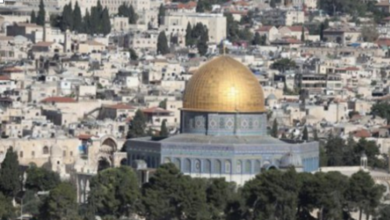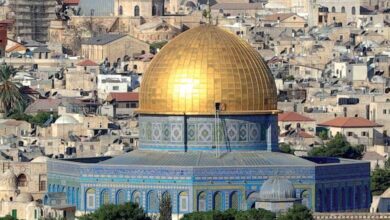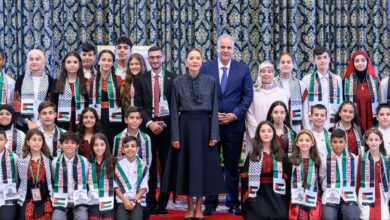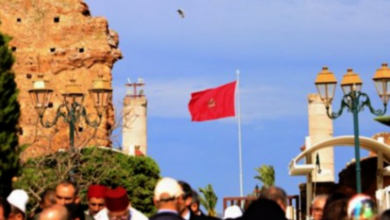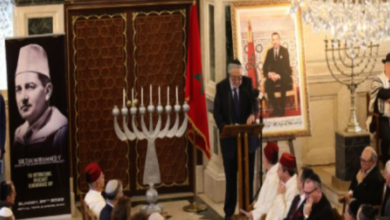On the occasion of the 40th Africa Day… UAE supports world heritage conservation projects in Africa
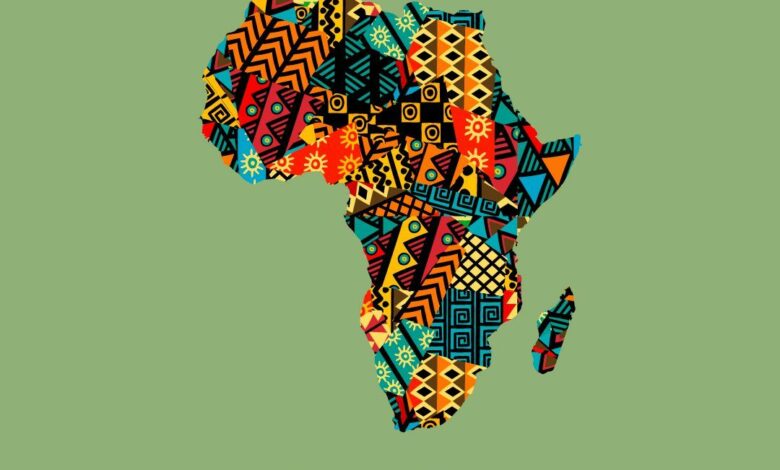
In a step to support tangible and intangible heritage files in Africa, The UAE on Thursday announced a fund to support world heritage protection and document conservation across Africa, according to thenationalnews.
The fund will be launched in collaboration with the International Alliance for the Protection of Heritage in Conflict Areas (Aliph), which the UAE co-founded with France in 2017, and the African World Heritage Fund, established by the African Union and the UN’s culture agency in 2006.
The initiative aims to support the conservation and protection of natural and cultural heritage of outstanding universal value across the African continent.
Through the Ministry of Culture and Youth, the UAE will become a platinum partner of the African World Heritage Fund, working to help communities and address the underrepresentation of African sites on Unesco’s World Heritage List.
Aliph will use funds to restore and revitalise Sudan’s Dongola Mosque, Yemrehana Krestos Church in Ethiopia and the Democratic Republic of the Congo’s National Cultural Heritage Inventory.
The ministry announced the initiative at an event held by the Africa Group at Unesco’s headquarters in Paris to mark the 40th Africa Day.
“In the UAE, we are committed to conserving human heritage in all its forms, and strengthening partnerships with international organisations actively working in this field, out of our belief in the importance of preserving this heritage for future generations, and the role it plays,” said Salem Al Qassimi, Minister of Culture and Youth.
“Heritage plays a significant role in intercultural dialogue, it enhances diversity, tolerance, coexistence and peace in societies.”
Mr Al Qassimi said the preservation of African heritage was particularly important, due to the continent’s cultural significance, heritage and role in human history.
“Through these efforts, we are keen to go beyond conservation and restoration projects and operations in Africa,” he said.
“We seek to make these projects sustainable and contribute to capacity development and to create job opportunities for the local community, and to involve them in all of these projects.”
As the UAE prepares to host the Cop28 summit in November, with 2023 marking the Year of Sustainability, Mr Al Qassimi emphasised the importance of recognising the effect of climate change on tangible and intangible heritage in Africa.
The fund builds on the UAE’s commitments to the continent. Last November, the Ministry of Culture and Youth, through the National Commission for Education, Culture and Science, signed an agreement with the Islamic World Educational, Scientific and Cultural Organisation to inscribe African heritage games on the Representative Lists of the Intangible Cultural Heritage of Humanity of both Unesco and Icesco.
Long-standing ties
In January, the ministry signed an agreement with the Arab League Educational, Cultural and Scientific Organisation, to help Arab countries in Africa submit joint files for inscription on the list.
“The UAE and Africa share long-standing ties,” Mr Al Qassimi told The National. “In the last decades we have reinforced our historical and cultural ties with the continent. Africa shares common heritage with the Middle East and deep-rooted links in the field of trade, culture, history and the Arabic language.”
He said that over the years the UAE introduced several initiatives and programmes in Africa to promote sustainable development, education, and cultural exchange across the continent.
“We are happy to be part of the Group of Friends for Priority Africa at Unesco and aim to ensure that the implementation of Unesco’s operational strategy for Priority Africa for 2022-2029 is tangible and impactful,” Mr Al Qassimi said.
“This priority not only raises expectations from African countries, but also hopes from other countries, like ours.
“We aspire to witness the effectiveness of Unesco’s efforts in Africa, resulting in tangible and enduring achievements throughout its educational, scientific, and cultural programmes. This includes fostering greater representation of Africa’s abundant and diverse cultural heritage within the Cultural Conventions.”
Through Aliph, a significant portion of the fund will be allocated towards revitalising Dongola Mosque — one of Sudan’s oldest preserved mosques and part of Unesco’s World Heritage Tentative List.
Urgent conservation work on the site began this year, carried out by the University of Warsaw’s Polish Centre of Mediterranean Archaeology and National Corporation for Antiquities and Museums. It will continue for another three years, offering 60 jobs to local residents and on-the-job training opportunities for Sudanese experts.
Aliph will also support the restoration of the Yemrehana Krestos Church — a palace and church complex in Amhara dating back to the 11th to 12th centuries.
The UAE will aid the restoration of the DRC’s National Cultural Heritage Inventory. Aliph and the Ministry of Culture and Youth have already assisted in the completion of the first phase, alongside the International Council on Monuments and Sites — with 29 specialists from the country trained in documentation and inventory preparation. The second phase is set to launch next year.
“The United Arab Emirates – our co-founding member and a global leader in the protection of cultural heritage — has been a champion of the Foundation’s mission since its very beginnings some six years ago,” said Thomas Kaplan, chairman of the board of directors of the Aliph Foundation.
He said the “ambitious” new partnership with the ministry was “a powerful reaffirmation of the country’s strong support for the new form of multilateralism that Aliph embodies — one that emphasises concrete action, tangible results, and operational flexibility”.
“Our joint efforts also shine a crucial spotlight on the absolute urgency to safeguard the African continent’s rich and diverse cultural heritage, while leading the charge to protect sites and monuments in Sudan, Ethiopia and the Democratic Republic of the Congo in the face of the dual threats of conflict and climate change,” Mr Kaplan said.
Meanwhile, Souayibou Varissou, executive director of the African World Heritage Fund, said that with the support by the Ministry of Culture and Youth “we will be able to better serve the continent in ensuring effective implementation of the World Heritage Convention in Africa”.
“This includes capacity building programmes, risk management and heritage tourism,” he said. “The invaluable support from the government of the United Arab Emirates will boost our capability to make long-term impact about the inscription of African sites on the World Heritage List and the conservation and management of those sites as an asset for the sustainable growth of local communities.
“Opportunities remain available for the continent to strengthen its cultural and natural heritage. The work done by the African World Heritage Fund is achieved through various partnerships with governments, communities, and their leaders including the youth.”
Sheikh Shakhbout bin Nahyan, UAE Minister of State, said the fund would help to protect and document invaluable heritage sites across Africa.
“Our vision embodies a resolute determination to empower local communities, inspire innovation and establish sustainable opportunities that will shape future generations,” Sheikh Shakhbout said.
“By doing so, we not only strengthen the fabric of cultural identity but also propel social and economic development, fostering an environment of peaceful coexistence.
“The launch of this fund on Africa Day has tremendous cultural significance. It is a day that not only commemorates vibrant African culture and the spirit of Africa, but also signifies the 60th anniversary of the establishment of the Organisation of African Unity, now known as the African Union.
“This convergence of historical milestones amplifies the importance of our collective efforts to preserve and celebrate Africa’s rich heritage”.
It is worth noting that the UAE has previous efforts in supporting tangible and intangible heritage files in Africa. In November 2022, the Ministry of Culture and Youth, through the National Committee for Education, Culture and Science, signed a memorandum of understanding with the Islamic World Educational, Scientific and Cultural Organization (ICESCO) on a project to record games. African traditional traditions on the lists of the intangible cultural heritage of ISESCO and the UNESCO lists of world heritage.
In January of this year, the UAE Ministry of Culture and Youth announced the signing of an agreement with the Arab League Educational, Cultural and Scientific Organization (ALECSO), with the aim of supporting the Group of Arab-African States to submit joint files for registration within the representative lists of the intangible cultural heritage of humanity at UNESCO.
It should also be noted that the announcement of an initiative to provide financial support for projects aimed at preserving world heritage and documents and developing and qualifying capacities and cadres in Africa was announced in the French capital, Paris, in the presence of the Minister of Culture and Youth, Salem bin Khalid Al Qasimi, and Fermin Edward Matuku, Assistant Director-General. to UNESCO for the priority of Africa and external relations, and Swaebo Variso, Executive Director of the African World Heritage Fund, and Valerie Ferland, Executive Director of the International Alliance for the Protection of Heritage in Conflict Areas “A”, along with a number of ambassadors, permanent delegates and delegates of African countries to UNESCO, and representatives of non-governmental organizations and the private sector.
ALdar : LA MAP

